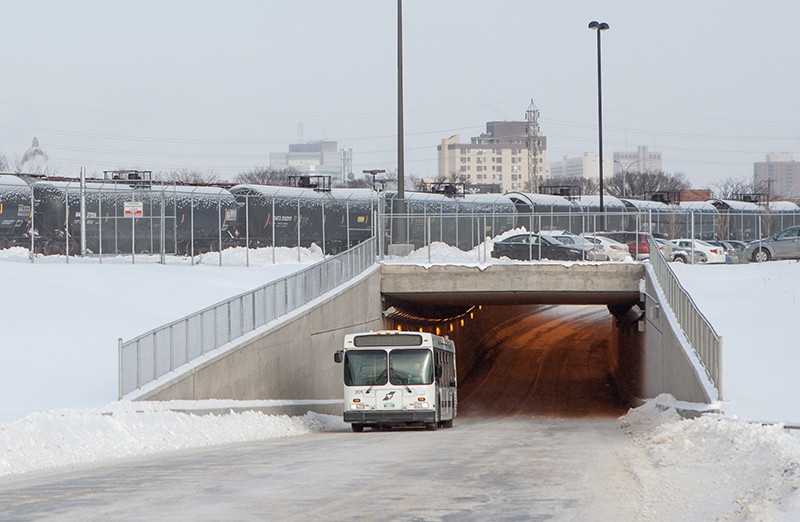U-Pass negotiations find tension before they begin
As student groups and Winnipeg Transit are set to begin negotiations on the creation of a universal bus pass this week, the two groups are at odds over how soon it will be implemented.
Zach Fleisher, vice-president advocate of the University of Winnipeg Students’ Association, told The Uniter last week he hopes to have the U-Pass in student hands by September 2013 - one year earlier than Transit says is possible.
“We definitely have student support to move forward,” said Fleisher, adding the UWSA, along with the University of Manitoba Students’ Union, is prepared to mobilize students to lobby city hall if it’s necessary to get the pass finalized by the next academic year.
In addition to student backing, Fleisher cites letters from University of Winnipeg and University of Manitoba administration as indicators of their support.
Bilan Arte, UMSU president, said the recent $4.65 hike in the cost of monthly student transit passes is an incentive to get the U-Pass implemented by fall.
“The principle goal is for students to have affordable transit year-round when they’re already paying so much for post-secondary education,” Arte said.
As Transit prepares for negotiations, the city says implementing a pass for September 2013 is highly unlikely.
“The earliest the U-Pass could be implemented is September 2014,” city spokesperson Alissa Clark wrote in a statement to The Uniter, adding that Transit is still working on cost estimates of the program.
According to Clark, current ridership rates are approximately 70 per cent at the U of W and 50 per cent at the U of M.
Although both the student unions and Transit expect the U-Pass to increase ridership at both universities, how large of an increase remains to be seen.
“The estimate of increased usage depends a lot on the outcome of the meetings we will be holding soon with the UWSA and UMSU,” Clark said.
Transit will be monitoring all routes and adjusting services and routes to meet the demands of any increase in ridership, she added.
Rapid transit could be leverage: councillor
City Coun. Jenny Gerbasi is not certain the pass will be available this year either, but is confident the city’s plans to prioritize a $350-million extension of the Southwest Transitway will help move negotiations along.
After a three-year funding debate between the city and other levels of government, Mayor Sam Katz recently committed $137.5 million to completing the second leg of the corridor.
“If anything, there’s an impetus,” Gerbasi said. “There’s a sense of momentum now that the city has made that commitment.”
The province has pledged $116.7 million to the project; however, the federal government has not confirmed a $75 million contribution requested by the city.
Jino Distasio, director of the Institute of Urban Studies at the University of Winnipeg, also sees the city’s commitment to extending the new corridor as an aid to the student unions’ negotiations with Transit.
“The initial hope was to get more university students taking the bus,” Distasio said. “It (the rapid transit corridor) should be used as a leverage point.”
According to Distasio, support of U of M students, who will likely use the new corridor, should carry some weight in the coming negotiations.
“We’re at a point where people realize that you have to have these things for students,” he said.
“If there is a challenge, it will be in considering the revenue for the city and transit.”
The students unions are confident a revenue-neutral deal can be struck with Transit through student costs and subsidies of $133 per student per year paid by municipal and provincial government.
In November, 81 per cent of U of W students voted in favour of the pass in a referendum. At the U of M, 74 per cent of students voted in favour.
Red River College Students’ Association did not hold a referendum, which had been supported by former president Garret Meisner, and is not pursuing the pass.
Other universities across Canada have already implemented successful U-Passes.
Edmonton saw bus ridership among undergraduate students double as a result of a U-Pass agreement with several schools. However, a referendum was not passed until a U-Pass concept and price that appealed to students was negotiated.
Published in Volume 67, Number 16 of The Uniter (January 16, 2013)








